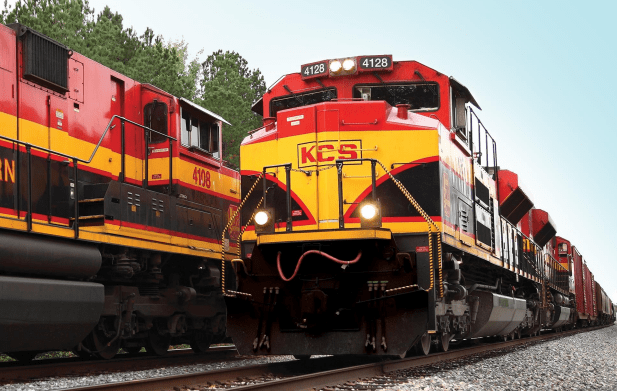The Kansas City Southern (KCS) network allows it to play an important role in linking Mexican manufacturers, especially in the automotive sector, with customers anywhere in North America, highlighted an analysis by the US Congress.
Above all, KCS is one of the two largest railroads in Mexico and the only one that connects to all other Class I railroads.
KCS owned runways in Mexico and the United States are not contiguous, separated by a short segment owned by Union Pacific and used by KCS under a runway rights agreement.
According to that same analysis, if Canadian Pacific Railway (CP) or Canadian National (CN) were to gain control of KCS, it could result in unequal terms for competing railroads seeking to preserve access to Mexican markets and manufacturers.
A CP-KCS combined rail system would have a T-shape on the map of North America, similar to that of CN.
If CN were to acquire KCS, it would effectively eliminate a competitor for north-south shipping between the Midwest and the Gulf Coast.
KCS and competition
Additionally, these connections are especially important to grain producers in the Upper Plains states and fossil fuel refineries in the Gulf.
So far, groups representing many clients in these industries have expressed support for a merger with CP in letters sent to the Surface Transportation Board; a merger with CN has also received many letters of support.
The merger is not likely to affect passenger service to such a notable degree, as KCS is not a major host of this traffic.
CN-hosted trains in Illinois and the city of New Orleans long-distance route tend to have poor punctuality performance, but this could change if CN switched freight traffic to the KCS system, creating less conflict for trains. of passengers.
Mergers
CP and KCS, two of the seven Class I companies that handle long-distance rail traffic in the United States, announced a merger agreement in March.
In April, another Class I airline, CN, submitted what it called a «superior proposal» to acquire KCS, which was accepted in May.
But CP can present a counter offer.
Either agreement, if approved by shareholders and federal regulators, would be the largest consolidation of the major railroads in several decades and create the first rail network to serve Canada, the United States and Mexico under a single corporate owner.
While this could lead to better service for some carriers, it could also have adverse consequences for freight competition.
Any transaction is likely to undergo lengthy review by the Surface Transportation Board.
![]()

